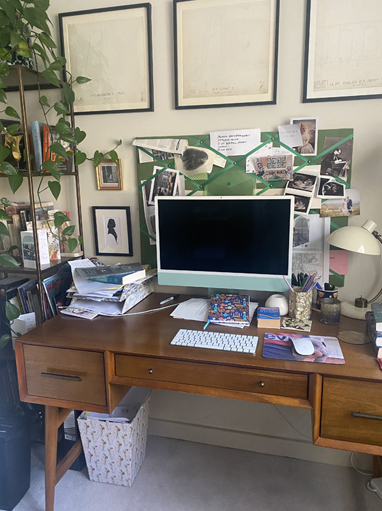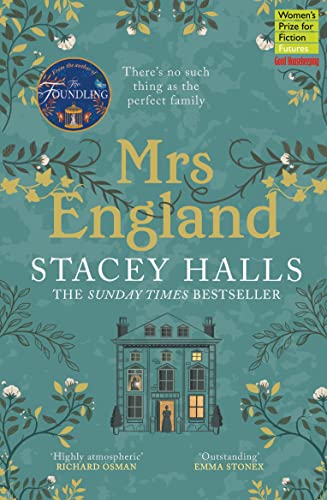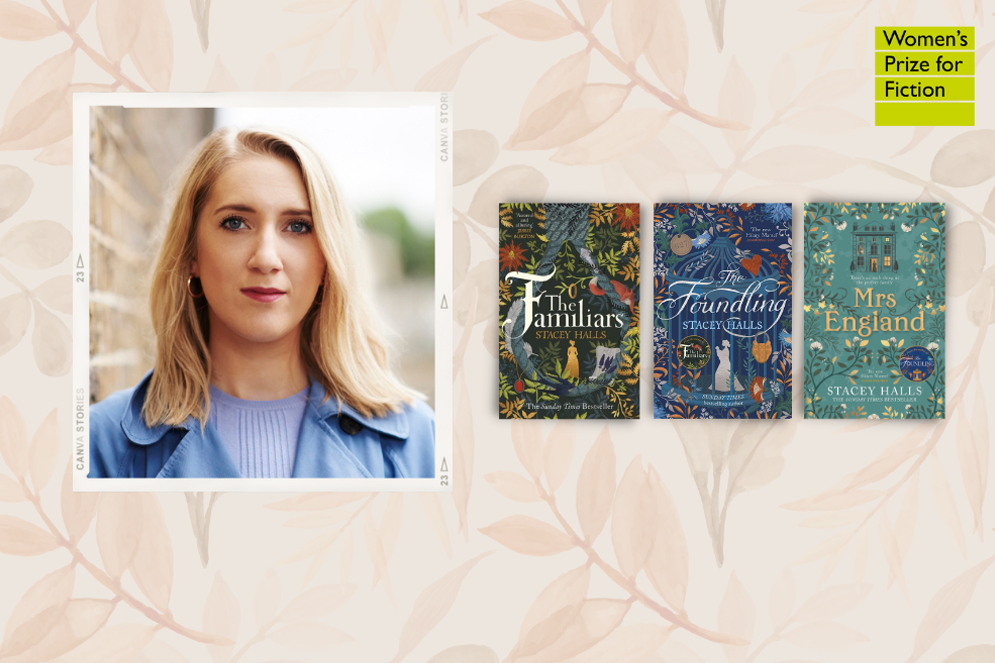Bestselling author Stacey Halls has been announced as the Women’s Prize x Good Housekeeping Futures award winner!
We’re so thrilled for Stacey and took the chance to sit down with her to ask her about her influences and inspirations, her writing advice and her writing rituals.
Describe in three words how it feels to have won the public vote for the Women’s Prize X Good Housekeeping Futures?
Surreal. Incredible. Surprising!
Share a photo of your desk!

What inspires you to write?
On a literal level, the fact that it’s my job and I only get paid when I hand a book in or have one published. I think writing is romanticised; 99% of the time you don’t feel inspired, you just get on with it. But I suppose I came to it in the first place to see if I had what it took to write and publish a novel. In my work as a journalist I met a lot of authors, and at some point I realised they were just ordinary people who had written books, rather than these demi-gods I had imagined them to be since I was very young. Now I’ve had three novels published, what motivates me is trying to write a better story than the last one.
What do you think you’d be if you weren’t a writer?
In a dream world, a locations manager for the TV and film industry, going to scout out properties and scenery. In reality I would still be a sub-editor at a magazine, as that’s what I was doing when I started writing.

What was the first thing you ever wrote?
My mum recently gave me some tied-together pages of stories I wrote and illustrated when I was about six or seven. One was about a servant called Lucy. I’ve always been obsessed by servants and the binary class system historically.
Can you share 3 tips for aspiring writers?
Think of some of your favourite books and work out it is you love them. Is it the main character? The setting? The slow-burn tension, or the intricacy of the world? That will help you work out what you want to and ought to be writing. Secondly, get used to having to have lots of ideas, because when you’re a published writer you have to keep having them. If you spend ten years writing one book only for it to get rejected by agents, it’s easy to think “I’m not cut out for this,” and give up, but as soon as you land a book deal you have to pitch your next one, and that’s the cycle indefinitely. So always have a couple of ideas percolating in the background of whatever you’re working on. Lastly, create a space to write where all you do is write: not a dining table, not the couch or bed. I bought a desk before I started writing The Familiars because I felt it would be an investment as well as a physical space where I was a writer, not just somebody who wanted to be one.
What are the 3 books by women that have most influenced your life and writing?
Rebecca by Daphne Du Maurier, Fingersmith by Sarah Waters and Giving Up The Ghost by Hilary Mantel.
Who is your favourite fictional character?
Usually whichever protagonist I’m writing at the time. There are too many to choose from in other people’s books!
If you could tell your younger self one piece of advice, what would it be?
Be curious, poke your nose into things, pick up books, click on articles. Nothing is created in a vaccuum.
Do you have any writing rituals – and can you tell us what they are?
I like to buy a new scented candle when I start a new book, so that the experience of writing it will forever be associated with that scent. Mrs England was Diptyque Mousses and Malin & Goetz Tobacco.
What is next for you?
I’ve just handed in the first draft of my fourth book in and I’m about to have a baby, so no doubt the next few months will be topsy-turvy and sleep-deprived. I’ll start editing in the new year, or that’s the plan anyway.








